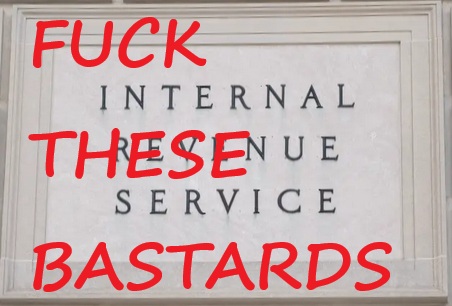I’m truly enjoying the havoc and chaos that Musk and his DOGE squad are inflicting on the Gummint.
I’m not so sure about this one, though:
Acting IRS Commissioner Melanie Krause felt slighted after Secretary of the Treasury Scott Bessent and Homeland Security Secretary Kristi Noem struck a deal for the tax agency to share data with DHS on illegal aliens. She decided to resign and take the government buyout that Trump offered.
Sources told the Washington Post that disagreements over the agency’s direction also factored into Krause’s decision to leave.
To be sure, I don’t give a rat’s ass about Krause — or pretty much any IRS apparatchik, fuck ’em all — but on reading further, her reason for quitting stuck with me:
Trump and Musk want to overturn the entire privacy regime that prevents the IRS from sharing data with other government agencies. They’re contemplating building a “cross-government data-sharing system,” reports the Post, “that would allow agencies to use personal tax information to hunt for fraud in social safety net programs.”
Nice goal, but I’m not so sure about that “cross-government data-sharing system” thing — most of all when it comes to tax-related data.
Remember the immortal words of John Cowperthwaite: “If I let them compute those statistics, they’ll want to use them for planning.” And no “statistics” are more deadly in government hands than financial ones.
I’m against giving government personal data, even in that most innocuous of functions, the decennial census. Financial data, that could be shared between government agencies (such as, for example, the FBI and ATF and not just Social Security)?
I don’t fucking think so.
The old joke was that the IRS didn’t care if you were a citizen or an illegal alien, as long as you paid taxes on your wages and earnings; while the INS didn’t care if you paid your taxes or not, as long as you were a legal resident. It was a joke back then, but it’s going to stop being a joke, in every way possible, if this “cross-government data-sharing system” becomes a reality.
And remember, while I may — may — trust that this Republican government is going to do The Right Thing with all this data that’s going to be shared (and that’s not a sure thing, by any means), I have no illusions about how this data is going to be used by any future government, no matter what its label may be.
It’s going to be used against us — you and me — for whatever purpose they may dream up.
The only way I might agree to this fuckery is if there’s an absolutely cast-iron guarantee that the IRS is going to disappear altogether in the (very) near future, to be replaced by a National Excise Office that would collect taxes exclusively from foreign governments (tariff fees) and merchants (end-user sales taxes) — i.e. when the godless 16th Amendment is nullified — and we all know that none of that is going to happen anytime soon.
I would stipulate that this sharing of tax data be limited strictly to root out corruption in the SocSec network — i.e. it’s a one-time, one-function application — but we all know that this stipulation would be ignored before the ink was dry on the paper, to await the arrival of a future government or government department which would use it as a tool to oppress and destroy our freedoms.
No, this data-sharing thing is a bridge too far, and I don’t care how badly it’s needed — Musk has yet to prove that to me or anyone else — or how much easier it would make DOGE’s job.
My personal data doesn’t exist in order to make anyone’s job easier or more convenient. So leave it the fuck alone.






